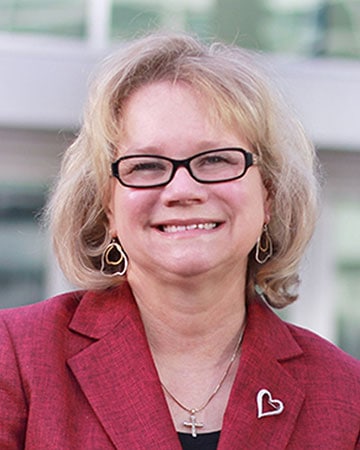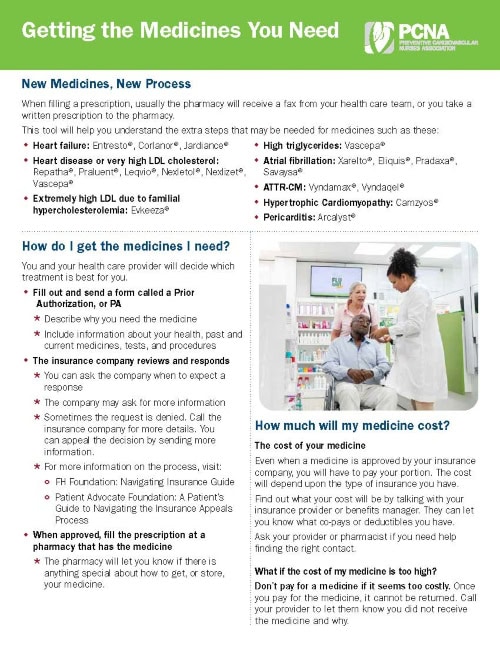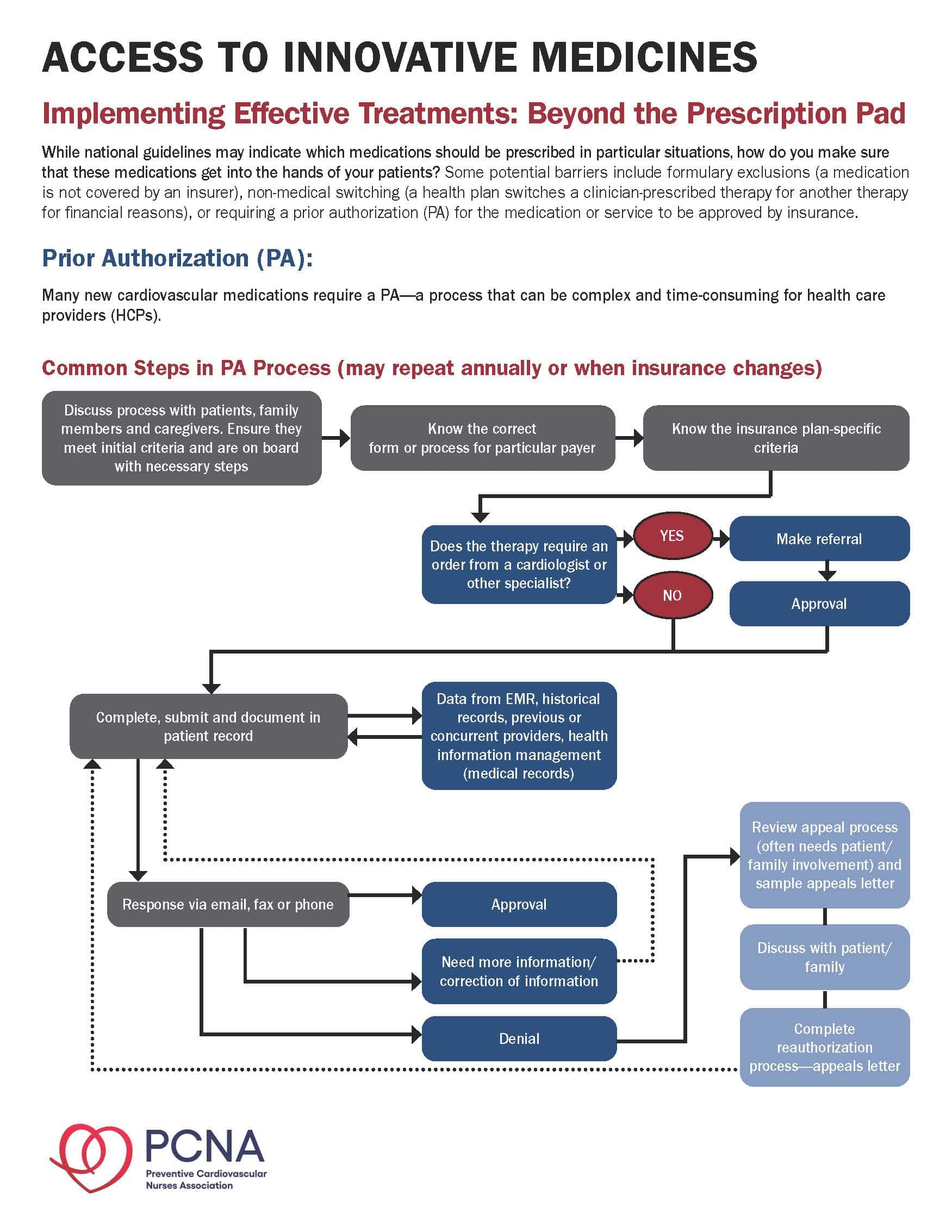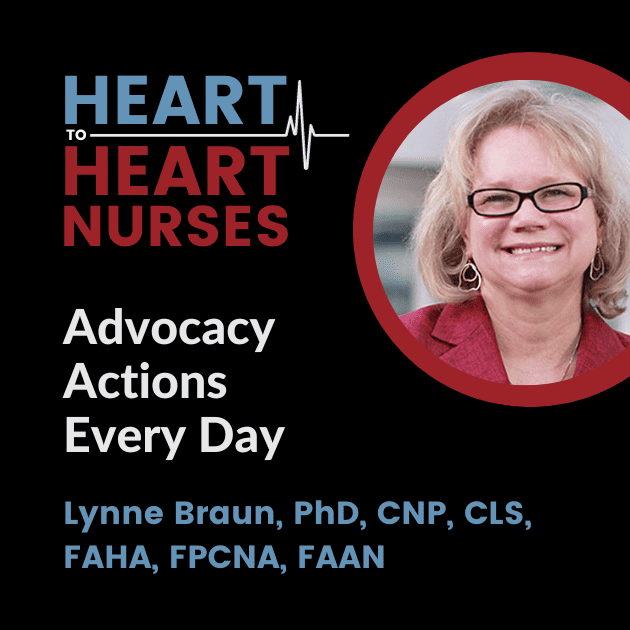Learn about advocacy actions you can take every day and the importance of nurses sharing their voices on issues that matter. Guest Lynne Braun, PhD, CNP, CLS, FAHA, FPCNA, FAAN, describes how to get involved and shares examples of engagement that made a difference.
Episode Resources
- PCNA Advocacy
- Advocacy Toolkit
- PCNA Advocacy Award – Nominate yourself or others; submissions are open from July through November.
Welcome to Heart to Heart Nurses, brought to you by the Preventive Cardiovascular Nurses Association. PCNA’s mission is to promote nurses as leaders in cardiovascular disease prevention and management.
Geralyn Warfield (host): Welcome to today’s episode, and I’m very pleased to be able to speak again with Dr. Lynne Braun, and she is going to introduce herself to our audience.
Lynne Braun (guest): Hi everybody. I’m pleased to be on this podcast with you again, Geralyn. My name is Lynne Braun. I am a Nurse Practitioner, and I am a Professor Emerita from Rush University. I retired from clinical practice and my academic position back in December of 2019.
I have been very involved with the Preventive Cardiovascular Nurses Association for a couple decades. I’m a former Board of Directors’ member, former [00:01:00] President. And it is an organization that I intend to stay engaged with, and so I’m very thrilled to be part of this podcast again.
Geralyn Warfield (host): Lynne, we are going to embark on a conversation about advocacy. And I’m wondering if you could get us started just talking a little bit about what advocacy might look like in various people’s lives.
Lynne Braun (guest): What I know most is what advocacy looks like for nurses, because I’m a nurse. And nurses are the most trusted profession, as you know, as we know it. And that’s been demonstrated time and time and time again; comes through every single year.
And it’s also, when nurses have the opportunity to speak to lawmakers about something they’re passionate about, they very quickly learn that lawmakers want to hear from them. Because they are trusted professionals and, [00:02:00] not just by lawmakers, but by the American public.
So, it’s important for nurses to understand that and to take, you know, whatever opportunity they have to embark upon advocacy.
Advocacy can mean many different things. As nurses, we can advocate for the nursing profession. For example, very often in my academic world, I have contacted lawmakers about more funding for student nurses, for nursing education in general, to allocate more funding because we, you know, we always are in a situation of a somewhat of a nursing shortage.
And, unfortunately, not a lot of nurses are pursuing greater education to become nursing faculty. So, we’ve [00:03:00] got to start that pipeline and, you know, and encourage more nurses to do that. So, we always need funding at various levels in nursing education. So, that’s one way to, for nurses to advocate for nurses.
But I also have been very involved with public health issues. I have, part of my background is also a volunteer for the American Heart Association, and I am a former Chair of the Advocacy Committee for the State of Illinois on behalf of the AHA. And I also sat on the National Advocacy Coordinating Committee for the American Heart Association.
So, anything that affects, that is good for heart health is something that, you know, we have advocated for. And, you know, PCNA is a strong partner with [00:04:00] AHA. And so those kinds of issues are common across organizations.
So, when I think of that type of work, I think of advocating for public health and also on behalf of the people that we serve, the public that we serve.
So, we may advocate and contact our lawmakers about issues like healthier school lunches, safe places to walk, you know, providing more funding to strengthen the environment so people can go out and engage in physical activity.
Something that came up just a few years ago and continues to come up, is cardiac rehabilitation.
We—and this was a virtual lobby day issue by PCNA, oh, either last [00:05:00] year or the year before, I can’t, but it was, it was in the recent past where—cardiac rehabilitation is a grossly underutilized service, yet it is lifesaving for the people who qualify for cardiac rehabilitation.
It’s been shown to reduce cardiovascular mortality in people who have had heart attacks or bypass surgery or for whatever reason they qualify for cardiac rehab.
But there are not facilities all around, and part of the reason why some cardiac rehab programs have closed is because of the stringent requirement of who must supervise cardiac rehabilitation on a day-to-day basis.
That used to be physicians. Physicians were [00:06:00] required to supervise day-to-day cardiac rehabilitation. But what we were able to pass is that now, advanced practice nurses, physician assistants—or associates as they call themselves now—and clinical nurse specialists can supervise cardiac rehabilitation.
But when this bill was passed—so it was un unanimously passed in the House and the Senate. However, the implementation was delayed for several years. And, and so then we, we’ve gone back to say, “Wait a minute, we’ve got to start. You know, this is a good thing to happen. This is a good change, but it’s got to happen sooner.”
So, I’m not exactly sure where this is right now, but you know, we’re making headway. We’re making headway on it.
Then I could talk about some of my own other experiences with [00:07:00] with advocacy. One of the, what we are advocating for this PCNA meeting is the Access AED Act.
And this would, this is a bill that would require secondary educational institutions, so high schools, to teach every child, every high schooler, CPR and use of an AED.
We saw the, the benefit of the AED on the football field very recently that saved the football player’s life. And so, I think that really kind of fueled a lot of interest now, because AEDs are so simple to use, they tell you what to do, you turn them on, and then you do what they say. So simple to use.
And [00:08:00] so that, that fueled a lot of interest in, in engaging anybody we can engage, in AED use, and, you know, having the training to use the AED. So that’s what we are advocating for this meeting.
Yesterday when I saw that, as I arrived and received my PCNA materials, I immediately sent letters to my members of Congress and asked for their support on this act.
Well, you know, I very often have gotten responses from my members of Congress, which is such a satisfying feeling, you know. And I know that they send these out all the time, or their staff send this these out all the time. But it’s still a gratifying feeling that, whatever [00:09:00] you have said was heard and you’re getting a response.
Well, I received a response from one of my senators, Senator Tammy Duckworth, literally within minutes of sending, asking for her support on this bill. And she said, “Yes, of course I am supporting Access AED. “
And in this letter, she reminded me that in Illinois we have had, we have required, high schools to teach students CPR and AED use for several years. And I do remember that because I was involved in that legislation, in lobbying for that at the state level as well.
So, it was back in, I think, 2014, when a high school student, her name was Lauren Laman, collapsed on an [00:10:00] outdoor field. She was engaged in, I think, the drill team actually. She collapsed and died, because nobody, I don’t think an AED was available and if there was, nobody knew how to use it. Nobody knew how to use it.
So, her parents actually were so passionate about the fact that, you know, that staff and students of secondary educational institutions need to be trained. And so, they worked together with respective organizations like the American Heart Association, and we passed, and many of us were involved in advocating for this bill. And it passed in either 2014 or 2015. So, in the state of Illinois, we have had this for a long time. The difference now, with what, what we are advocating for is [00:11:00] a federal bill, you know, where every, you know, secondary educational institution will need to train the children and the staff on use of the AED.
Geralyn Warfield (host): So, advocacy definitely can look different in various locations and at various times. And we’re going to be right back and talk a little bit more about that.
Geralyn Warfield (host): We’re back with Lynne Braun talking about advocacy and what cardiovascular and other nurses can do to make a difference in their community and at a more global scale.
And Lynne, I think a lot of people feel like they maybe don’t even know where to start when it comes to advocacy, and that’s why organizations like PCNA offer things like lobby day so that people can very easily sign on to legislation. But do you have any other resources that you would point to that someone who has maybe got an interest in doing something related to advocacy and just doesn’t know where to start?
Lynne Braun (guest): Sure. Well, nurses, and I’ve, [00:12:00] you know, I’ve often, I’ve taught this in, some of the courses, some of the professional-type courses that we have had.
Every organization has an advocacy arm, every professional organization. And if a nurse is a member of a professional organization, on the website there will be generally a tab stating ‘advocacy.’
And that will give you, give a person a ton of information on how to get involved. And you know, oftentimes you sign up to get alerts. And that’s where it starts, is you respond to these alerts that you get and you learn what the issues are that are important for that particular organization. And if you’re passionate about that, contact whoever [00:13:00] the Advocacy Director is and get involved.
You know, I’m sure that there are advocacy committees that you can get involved with. There are various advocacy trainings, so writing letters to your lawmakers is not the end of it. It is not the only way that you can get involved.
You can do even more direct things like within your community, if there is a particular issue that you’re passionate about. You can write a letter to the editor that is then published in your local paper and speak very intelligently in that letter. And oftentimes too, if this is something that is also an issue, an advocacy issue for an organization that you’re involved [00:14:00] with, the staff there will help you write that letter to the editor. They will edit your letter to the editor so that it is precise to the point because you just can’t go on and on and on. You’ve got to be, it has to be a very, very pointed letter. And I have done that a number of times and had things published in the local paper.
Kind of a funny, not so funny story is, I live in a suburb outside of Chicago. And this new candy store opened. And the candy store sold some old-fashioned candies. I went in there one day and I saw that they sold candy cigarettes. And that to me is like you know, that’s like nails on the chalkboard to me.
So, I went and talked to the owner and said, you know, that’s not a good, a good message. You know, kids come in here, [00:15:00] candy cigarettes—that’s not a good message. Well, she, she looked at me like I had two heads, you know, and it was clear that she wasn’t going to do anything about it.
And I’m standing outside the store chatting with my husband and a bit frustrated. And sure enough, there were these kids that came out of the store. They had bought the candy cigarettes and they were using them, you know, like an actual cigarette and laughing and joking about this. And that, just that just really rubbed me the wrong way.
So, I went home and wrote a letter to the editor about this.
I didn’t exactly name the store, but given the amount of information I told, somebody could figure it out. And eventually the store closed.
Geralyn Warfield (host): Wow.
Lynne Braun (guest): Yeah.
I got involved in advocacy, like I said, a couple decades ago, and [00:16:00] the first time I went to Washington DC to talk to my law lawmakers, I had an absolutely amazing experience. It was the biggest feel-good professional experience I had had in a long time, partly because it was different than what I do on a day-to-day basis, you know?
And, you know, we went there with patients. We were there were several healthcare providers from Illinois. We went there with some of our public health officials. It was, you know, it was great. And we had key issues that we were talking about.
But what happened on the way afterwards, was something that really had an impact on me.
I was sharing a taxi with the Senior Advocacy Director of the American Heart Association for Illinois. [00:17:00] He’s punching in these numbers in his phone and he said, “Lynne, I need you to call Senator Radogo’s office.”
And I said, “What’s going on, Mark?”
And he said, “Well, you know,” he said, “The bill is coming up for vote tomorrow. And this has to do with AEDs.” Actually, this is back when we were debating whether we should have AEDs in sports arenas and fitness facilities.
And so, my senator was on the fence about this because of funding. Because it was going to cost money. “And she could,“ he explained to me, “She could very well be this swing vote on this.”
So, it’s like 4:30. The offices are going to close. I happened to know the senator because our kids went to school together. “So, you know,” he said, “I want you to,” you know, he said, “We need [00:18:00] to, you know, we need to talk her into this.”
So, I called, and I said my thing about, you know, why it’s utmost important to fund this initiative and to save lives.
And the bill passed the next day.
You know, and so I thought, “Huh, maybe I had something to do with that.” Maybe not, but, you know, but it was a great feeling, and a success story.
Now you don’t often, you don’t always have success stories in advocacy, and very often it’s an exercise of continued passion but persistence. Because very often, you know, you’re there advocating with your lawmakers, and the bill may not even come up for a vote that session.
And so, then you start all over.
You have to literally start all over the next time the, you know, during the next [00:19:00] congressional session and you know, and sometimes over again. And I’ve been in involved since the, you know, the ‘smoke-free Illinois’ days and ‘Tobacco 21.’ We advocated for, you know, so many very important and public health initiatives.
Geralyn Warfield (host): So, it sounds like your experience has been working at a lot of different levels, including at the national level, including at the state level. What would you offer to a listener who is interested in being involved at a little bit more local level, maybe within their own institution? Are there suggestions that you might offer to that individual?
Lynne Braun (guest): Sure. Healthcare institutions have a department that’s called something different [00:20:00] in different places. But they do advocacy work. So, you know, sometimes you have to do some checking out, investigating.
But even outside of an institution that employs you, you can get involved in advocacy in your community.
You know, if there is an issue that you feel passionate about, you can get on the agenda to talk to the board, you know. I’m not exactly sure in Chicago how you would present something to the city council or how you would initiate that. Often that may come through a variety of partnering organizations, but you can be part of that initiative, you know?
In Chicago, we had an initiative to, oh, what was [00:21:00] this? To reduce the intake of sweetened beverages, which, you know, are certainly directly related to obesity. This was a very interesting and a very heated endeavor, you know, because we had the beverage companies obviously not wanting this to happen.
And in fact, it was passed by the Chicago City Council, but then it was reversed because of all the noise that the beverage companies made. Oh, it was the sugar tax. That’s what it was. I’m sorry. It was placing a fairly large tax on sweetened beverages. And so, it was passed and within about two weeks’ time, I think maybe three weeks, it was reversed.
So, you know, you could be passionate about something and it may not [00:22:00] come to be.
But I know, you know, young moms are often interested in health initiatives within the school system, and they can get involved there, you know, that way. Or they can get involved in their local communities with various health initiatives.
You just have to find out who the right person is to talk to.
Geralyn Warfield (host): Lynne, you have been so inspirational today and given us. So many things to think about. I think the first thing that we need to identify individually is what are we passionate about and how can we put that passion into action? And you exemplify that each and every day, and we’re very grateful to you for doing so.
That’s the end of this episode. I’m your host, Geralyn Warfield, and we will see you next time.
Thank you for listening to Heart to Heart Nurses. We invite you to visit pcna.net for clinical resources, continuing education, and much more.
Topics
- Advocacy
- Professional Development
Published on
November 21, 2023
Listen on:

PhD, CNP, CLS, FAHA, FPCNA, FAAN
Related Resources








